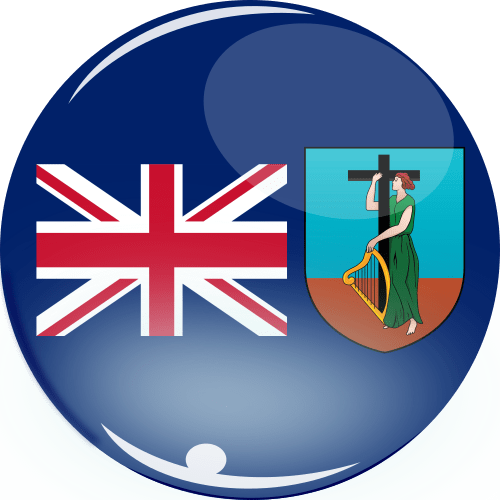Sanctions

The Governor of Montserrat is the representative of the British Monarch in the United Kingdom’s Overseas Territory of Montserrat. The Governor is appointed by the Monarch on the advice of the British government.
Duties of the Governor’s Office include promoting economic diversity, protecting the environment, developing constitutional relationships, ensuring that the island’s international obligations are met, eliminating vulnerability to natural disasters and liaising with other UK Government Departments for the betterment of the Overseas Territory of Montserrat.
The Governor’s Office is located at: #8 Farara Plaza | Brades | Montserrat| MSR 1110
UK in Montserrat: GOV.UK | Twitter | Facebook
Montserrat’s Mutual Evaluation Assessment
One priority for the Governor’s Office over the next 12 months will be supporting the Government of Montserrat through its next Mutual Evaluation Review by the Caribbean Financial Action Task Force (CFATF).
The Financial Action Task Force (FATF) is the global money laundering and terrorist financing watchdog. The inter-governmental body sets international standards that aim to prevent these illegal activities and the harm they cause to society.
The FATF Standards have been developed to ensure a coordinated global response to prevent and disrupt organised crime, corruption and terrorism and the funding of weapons of mass destruction.
The FATF and FATF-Style Regional Bodies (FSRBs), seek to ensure that the standards are implemented internationally to ensure that there is a consistent global response to Anti-Money Laundering and Counter-Terrorist Financing (AML/CFT). The FATF monitors countries to ensure they implement the FATF Standards fully and effectively, and holds countries to account that do not comply.
These standards are aimed at supporting countries to introduce domestic legislative and regulatory reform to help authorities deprive money from criminals and terrorists. AML/CFT should be an integrated element of national and international counter crime and terrorism strategies.
Countries undergo periodic mutual evaluations and assess their level of implementation with the FATF Standards. The next Mutual Evaluation Review of Montserrat will take place in 2024 to be conducted by CFATF.
For more information about the assessment of the implementation of anti-money laundering and counter-terrorist financing (AML/CFT) measures in Montserrat, please consult the CFATF website (www.cfatf-gafic.org).
For more information on Preventive Measures and Financial Sanctions, please click on the links below:
Sanctions Observed in Montserrat
Targeted Sanctions
A number of international financial sanctions are applied against countries, regimes or persons designated to be in violation of international laws. They are imposed with the intent of –
- changing the conduct of listed countries, regimes or persons;
- imposing punitive measures when international peace and security are threatened and diplomatic efforts have failed; and/or
- deterring, preventing or suppressing terrorist acts. The international body that adopts international sanctions measures is the United Nations (UN) through resolutions passed by the UN Security Council (“UNSCRs”). The UK Government implements UN sanctions and issue guidance notices to relevant entities in the United Kingdom.
From time-to-time, the UK Government passes Orders (“Orders”) in Council implementing UN sanctions and extending such sanctions to its Overseas Territories. When extended to Overseas Territories, these Orders have the force of law in Montserrat, as a British Overseas territory, and breaches may constitute an offence for which fines and/or criminal convictions may result. The Orders that are in force in Montserrat can be found on the Sanctions page of the Montserrat Financial Services Commission. When advised by OFSI, UNSCRs in relation to terrorist and proliferation financing are also implemented in Montserrat pursuant to the Terrorism Law and the Proceeds of Crime Act and guidance notices are issued to relevant stakeholders in Montserrat.
The United Nations has passed two resolutions relating to anti-proliferation, one related to North Korea and the other related to Iran. In relation to proliferation, the current orders that give effect to UNSCR 1718 (2006) are the Democratic People’s Republic of Korea (Sanctions) (Overseas Territories) Order 2012 and the Iran (Sanctions) (Overseas Territories) Order 2016.
In addition, there are two resolutions relating to terrorist financing: The current Orders that give effect to UNSCR 1267(1999) are The Isil (Da’esh) and Al-Qaida (Sanctions) (Overseas Territories) Order 2016 and the Afghanistan (United Nations Measures) (Overseas Territories) Order 2012.
Anti-Proliferation Financing Orders
Pursuant to the Proceeds of Crime Act the Financial Services Commission may give a direction to a person or class of persons within the financial services sector in relation to terrorist financing, money laundering or the development of weapons of mass destruction, also called “proliferation activities”. Via these directions the Financial Services Commission has the power to impose requirements relating to enhanced customer due diligence measures, enhanced ongoing monitoring practices, systematic reporting and cessation of business. Failure to comply with a direction constitutes an offence and may be subject to penalties under the Proceeds of Crime Act.
Responsibility of Financial Services Providers
Financial Services Providers (“FSPs”) are expected, pursuant to the Anti-Money Laundering Counter Financing of Terrorism Regulations (2010), to have systems and controls in place to conduct initial due diligence, for monitoring on an ongoing basis and reporting. In the event of updates to the relevant sanctions lists, FSPs may discover that certain sanctions are applicable to one or more of their service providers, existing or new. Pursuant to the Proceeds of Crime Act and Anti-Money Laundering and Counter Financing of Terrorism Regulations these service providers have certain reporting obligations to the Financial Services Commission, as well as certain freezing obligations, if they discover a relationship that contravenes an Order or a direction under the Proceeds of Crime Act.
The Financial Services Commission has issued Guidance on Targeted Financial Sanctions for the public that FSPs might find useful as it contains information on sanctions reporting obligations under the Terrorism Law and the Proceeds of Crime Act.
List of Sanctions applicable in Montserrat
A list of orders in force in the Montserrat can be found here: Sanction Orders.
Please note that the Commission does not guarantee that this list is accurate, complete and up to date. It is the responsibility of every FSP to keep itself updated and to comply with the sanctions in force in Montserrat.
Obtaining a licence under restrictive measures or UN Sanctions (Overseas Territories) Orders
The respective order should be consulted to determine if a licence is available allowing for activities that would otherwise be prohibited under the order.
An application can be made under the relevant article of the respective order for a licence allowing for the desired activity that would otherwise be prohibited under the order.
An application for a licence is to be made in writing to the Financial Services Commission. A copy of the licence application form can be found in the Guidance on Targeted Financial Sanctions issued by the Financial Services Commission.
